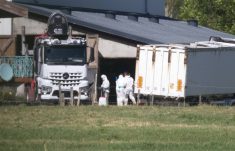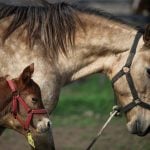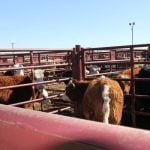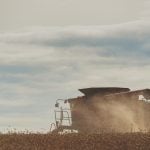One of Canada’s biggest beef packing plants, just north of the flood-battered town of High River, Alta., expects to be reopened and running nearer to its full capacity on Tuesday (June 25).
The Canadian arm of U.S. agrifood giant Cargill said Monday the beef fabrication, trim and grind, rendering, cooler, shipping, warehousing, maintenance, administration and human resources departments at its High River packing plant will run both their shifts starting Tuesday.
However, the “harvesting” of beef — that is, beef cattle slaughter operations — will not take place Tuesday, the company said.
Read Also

U.S. livestock: Cattle fall sharply as Trump says he’s working to lower beef costs
Chicago cattle futures fell sharply on Friday after U.S. President Donald Trump said his administration was working to lower the…
Cargill said it plans to provide meals for workers and transport them to and from the plant.
The company’s operation is about five kilometres north of High River and was not directly damaged by the flooding that led to the evacuation of the community.
The 450,000-square foot plant, when operating at capacity, employs about 2,000 people processing up to 4,500 cattle per day.
High River was among communities large and small in southwestern Alberta that were swamped and/or evacuated due to flooding over the past four days, as a system bearing heavy rain parked itself over the region, during a period of heavy snowcap runoff from the nearby Rocky Mountains.
As of noon Monday, the Alberta government had confirmed 23 states of local emergency across the region.
The province also said Monday it has approved $1 billion as part of its first phase of emergency recovery and reconstruction funding, and that by midweek it will distribute pre-loaded debit cards to help displaced residents with “immediate housing needs and day-to-day purchases.”
Communities in eastern Alberta and Saskatchewan, running up to The Pas in northwestern Manitoba, are now bracing for impact as the water makes its way up the Saskatchewan River.
IN PICTURES: Southern Alberta in deep
Alberta’s agriculture minister, Verlyn Olson, took to Twitter on Monday advising affected farmers to contact the provincial crop insurance and financing agency, Agriculture Financial Services Corp. (AFSC).
AFSC said Monday its High River office would be closed until further notice, and directed that office’s clients to call the AFSC toll-free line (1-877-899-2372) or contact AFSC offices at Claresholm or Vulcan.
Olson noted Friday on Twitter that it’s still “too early to assess the full extent of (the floods’) impact on farmland” in the region.
CLICK HERE to visit the provincial ag ministry’s flood preparedness page for crop and livestock producers and other rural residents.
U.S. fertilizer firm CF Industries announced Sunday it has already run an “orderly shutdown” of its nitrogen fertilizer processing plant at Medicine Hat, Alta., in advance of eastbound flooding on the South Saskatchewan River.
While the CF plant itself is about 200 feet above normal river levels, the company said, its pump house, which holds equipment used to draw river water for plant operations, is near the riverbank.
Canadian Pacific Railway, whose main line west of Calgary through the Banff and Canmore closed due to the flooding in the area, announced Monday its main line has reopened, after crews “successfully restored segments impacted by the extreme weather.”
The CP main line will be “fully” restored once a portion of the company’s track in Calgary reopens, which is expected to happen Monday evening, the company said. A segment of CP’s south line to Lethbridge is also expected to be “fully restored” by Thursday.
Among other agribusinesses, JBS USA spokesman Cameron Bruett told the Reuters news service on Monday that the JBS beef plant at Brooks, Alta. was operating normally.
It was also business as usual at Agrium’s nitrogen fertilizer plant at Carseland, Alta. and at Methanex’s methanol plant at Medicine Hat, company officials told Reuters. — AGCanada.com Network/Reuters
Related stories:
Cargill’s High River beef plant closed, not flooded, June 23, 2013
Too early to assess flood’s impact on Alta. farmland: AgMin, June 22, 2013














